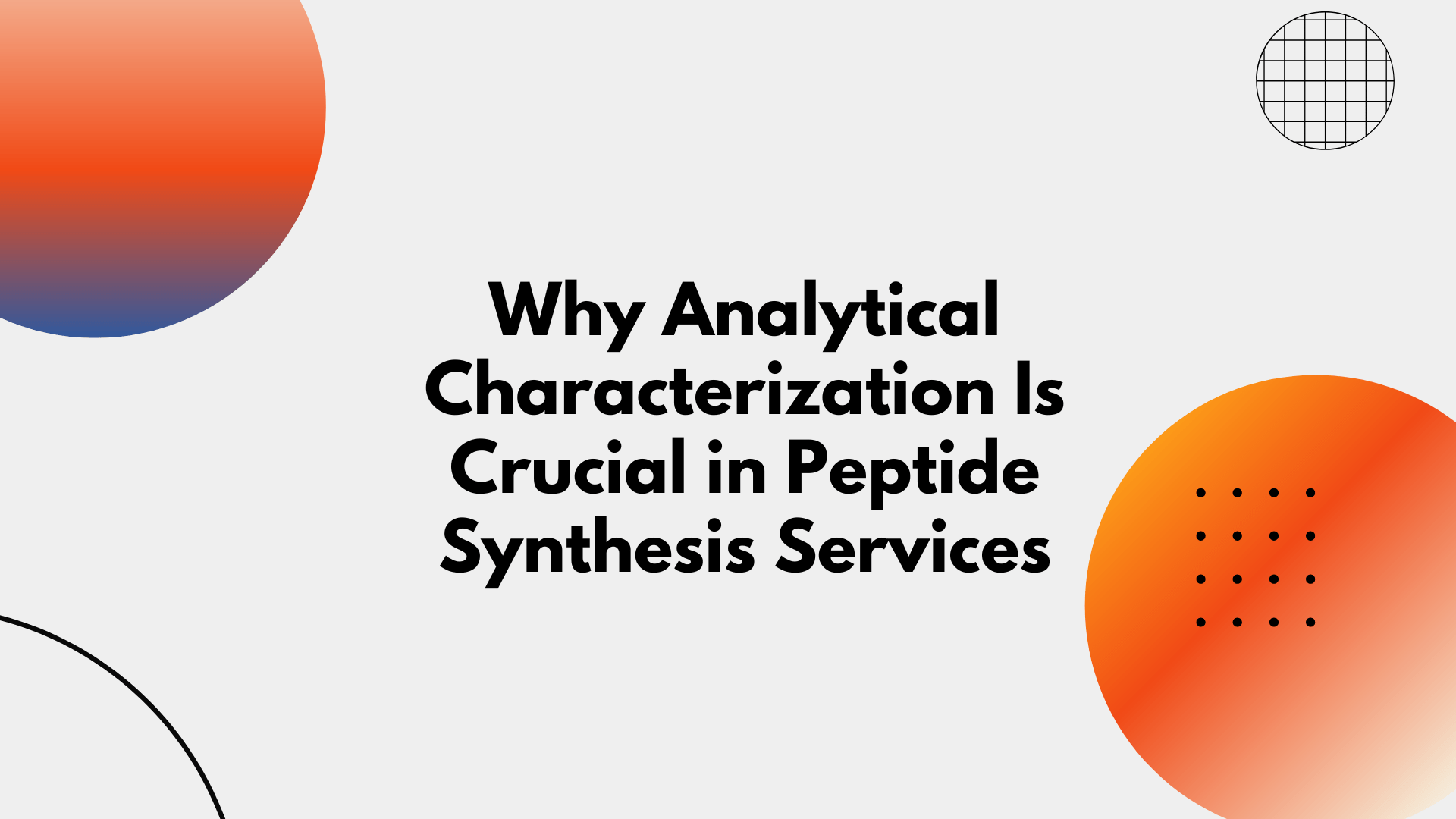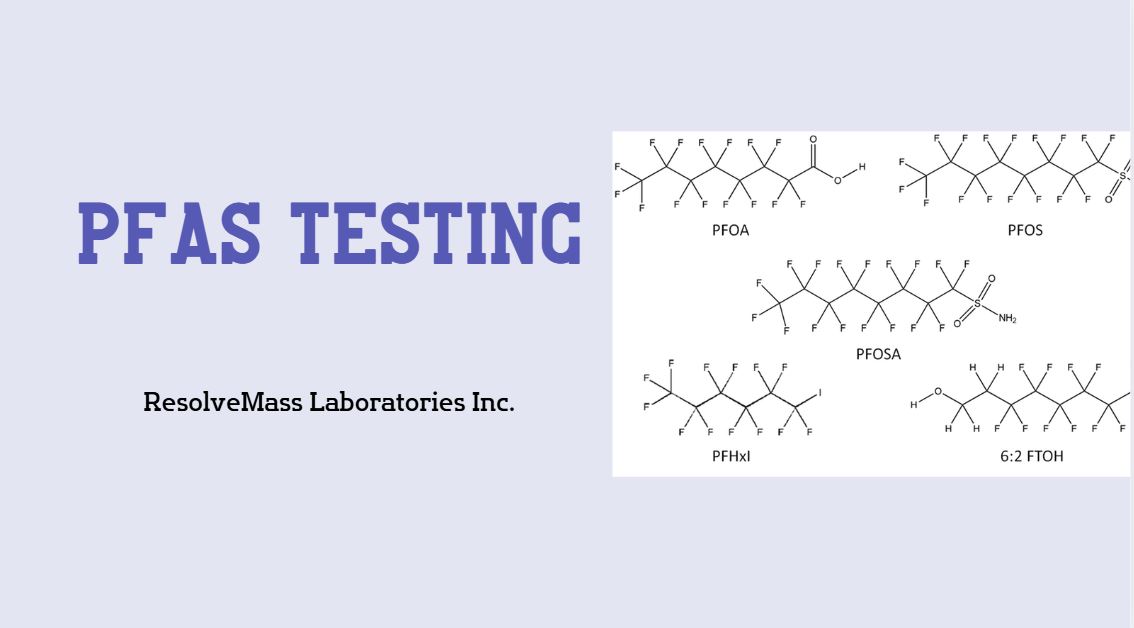Introduction: The Role of Analytical Support in Peptide Synthesis
In today’s biotech and pharmaceutical industry, Analytical Support in Peptide Synthesis is not just an extra step—it’s a necessary part of the process. It plays a key role in confirming the amino acid sequence and checking for important factors like purity, identity, and stability. These checks are needed to make sure that the peptides meet all research and regulatory requirements. At ResolveMass Laboratories Inc., we include strong Analytical Support in Peptide Synthesis right from the beginning. This helps our clients move from raw synthesis to fully verified and reliable results, with complete peace of mind.
Whether you’re developing therapeutic peptides, vaccines, or custom biomarker tools, it’s important to work with a partner who offers full analytical services. Having complete analytical capabilities helps ensure your products meet quality standards and follow all regulations. They also protect the scientific accuracy of your work. A reliable partner can make the entire process smoother, safer, and more effective.
Why Analytical Support in Peptide Synthesis Matters
1. Sequence Verification: Confirming What You Made
Without accurate sequencing, even a tiny mistake can affect the entire project and lead to delays or failure. That’s why it’s important to use advanced tools to double-check the sequence of the peptide. Techniques like mass spectrometry (MS) and Edman degradation help confirm that the synthesized peptide is exactly the same as the one you planned. These methods give confidence that the final product matches the target design.
Learn more about peptide sequencing →
2. Purity Analysis: Ensuring Therapeutic and Experimental Integrity
Purity is not just a choice—it’s something required by regulations in pharmaceutical and research settings. If a peptide isn’t pure, it can cause problems in studies or fail to meet safety standards. Analytical techniques like HPLC (High-Performance Liquid Chromatography) are used to measure how pure the final peptide is. They also help detect any unwanted by-products or signs of degradation that may have formed during synthesis.
Explore how we test peptide purity in our lab →
3. Impurity Profiling: Regulatory Compliance and Safety
Identifying and characterizing peptide impurities is a critical part of the drug development process. Even small amounts of impurities can affect how a drug behaves in the body, which makes early detection essential. At ResolveMass, we focus on carefully analyzing these impurities to protect both quality and patient safety. We use powerful tools like LC-MS, capillary electrophoresis, and other reliable techniques to get accurate results. All of our methods are designed to fully comply with ICH guidelines. This helps ensure that every batch of peptide meets the high standards required for pharmaceutical use.
See how we handle peptide impurity characterization →
4. Stability Testing: Supporting Storage and Formulation
Peptides can be very unstable, especially when exposed to certain temperatures or conditions. Without proper testing, their quality can break down over time. Analytical Support in Peptide Synthesis includes performing accelerated stability studies to check how long a peptide stays effective. These studies help predict shelf life and identify the best storage conditions. By understanding how peptides behave over time, we can make sure they stay safe and reliable for their intended use. This step is important for both research and commercial applications.
Analytical Techniques in Peptide Synthesis: A Breakdown
H2: Key Analytical Techniques Used for Peptide Characterization
To provide complete analytical support in peptide synthesis, ResolveMass leverages:
- HPLC: For purity and retention time data
- LC-MS: Mass verification and impurity detection
- FTIR & UV Spectroscopy: Functional group analysis
- NMR (for longer peptides): Structure confirmation
- SDS-PAGE: Peptide aggregation and integrity
- MALDI-TOF: High-throughput sequence screening
Learn about the techniques we use every day →
Real-Time Case Study: Analytical Support in a 16-Mer Peptide API for Oncology Research
A U.S.-based oncology startup requested a 16-amino acid custom peptide for preclinical trials. The peptide was designed for a specific cancer research application and required high purity and precise sequencing. To support their timeline and quality needs, our team ensured careful synthesis and thorough analytical testing.
- Synthesis method: Solid-phase peptide synthesis (SPPS)
- Requirements: ≥ 98% purity, complete analytical report for IND filing
- ResolveMass Approach:
- HPLC for purity
- LC-MS for mass and identity
- UV spectroscopy for concentration validation
- Stability data over 8 weeks
- Result:
- 99.3% purity achieved
- Delivered within 14 working days
- Supported successful preclinical trial submission
See how synthesis method impacts analytical needs →
Analytical Support in Peptide Synthesis vs. Basic Synthesis: What’s the Difference?
| Feature | Basic Synthesis | With Analytical Support |
|---|---|---|
| Sequence confirmation | Not guaranteed | Verified by LC-MS / MS/MS |
| Purity reports | Often limited | Full HPLC with trace impurity data |
| Stability data | Usually missing | Included for storage/formulation |
| Regulatory readiness | Not compliant | Aligned with FDA/ICH requirements |
Choose analytical characterization services in Canada →
How ResolveMass Ensures Analytical Excellence
At ResolveMass Laboratories Inc., we embed Analytical Support in Peptide Synthesis from start to finish. This ensures that each step of the process is carefully monitored for quality and accuracy. By building analysis into every stage, we help deliver consistent, high-quality peptides you can trust. Every custom peptide project is backed by:
- Certified chemists and analytical scientists
- Calibrated, GMP-compliant instruments
- Regulatory-grade documentation (COA, chromatograms, stability reports)
- Speed and reliability with real-time client updates
Our Canadian peptide lab ensures quality, every time →
Conclusion: Analytical Support in Peptide Synthesis Is a Must, Not a Maybe
In peptide development, success isn’t just about making the right molecule—it’s about being able to prove you made it correctly. Without proper testing and verification, even the best-designed peptide might not be accepted for further use. That’s why analytical support in peptide synthesis is so important. It helps confirm the identity, purity, and structure of the peptide, ensuring that everything meets required standards. This support is essential for regulatory submission, scientific reproducibility, and overall data integrity. In short, it turns a good synthesis into a trusted result.
ResolveMass Laboratories Inc. helps you go beyond synthesis to validated, ready-to-use peptides—delivered fast and with full transparency. Our team ensures each peptide meets strict quality and analytical standards before it reaches you. You’ll always know exactly what’s in your product, with no guesswork involved.
Talk to our analytical experts today →
Contact ResolveMass Laboratories Inc.
✅ Request your peptide analysis quote →
✅ Speak to an analytical chemist now →
✅ Custom peptide + full characterization →
✅ Explore our analytical support options →
FAQs: Analytical Support in Peptide Synthesis
Yes. HPLC is standard for measuring purity, identifying impurities, and confirming consistency across batches.
We use LC-MS, capillary electrophoresis, and HPLC to detect even trace-level impurities and degradation products.
It provides documentation required by regulatory agencies like the FDA or EMA, including purity, mass confirmation, and impurity profiles.
Yes, ResolveMass provides full peptide sequencing services using mass spectrometry and related methods.
We typically achieve ≥98% purity for therapeutic peptides using solid-phase synthesis and advanced purification techniques.
Yes, we perform accelerated and long-term stability testing under various storage conditions as part of our analytical support.
Depending on sequence complexity, we deliver fully characterized peptides in as little as 10–15 working days.
Therapeutic peptide APIs, diagnostic peptides, vaccine components, and biomarker peptides all require detailed analytical validation.


